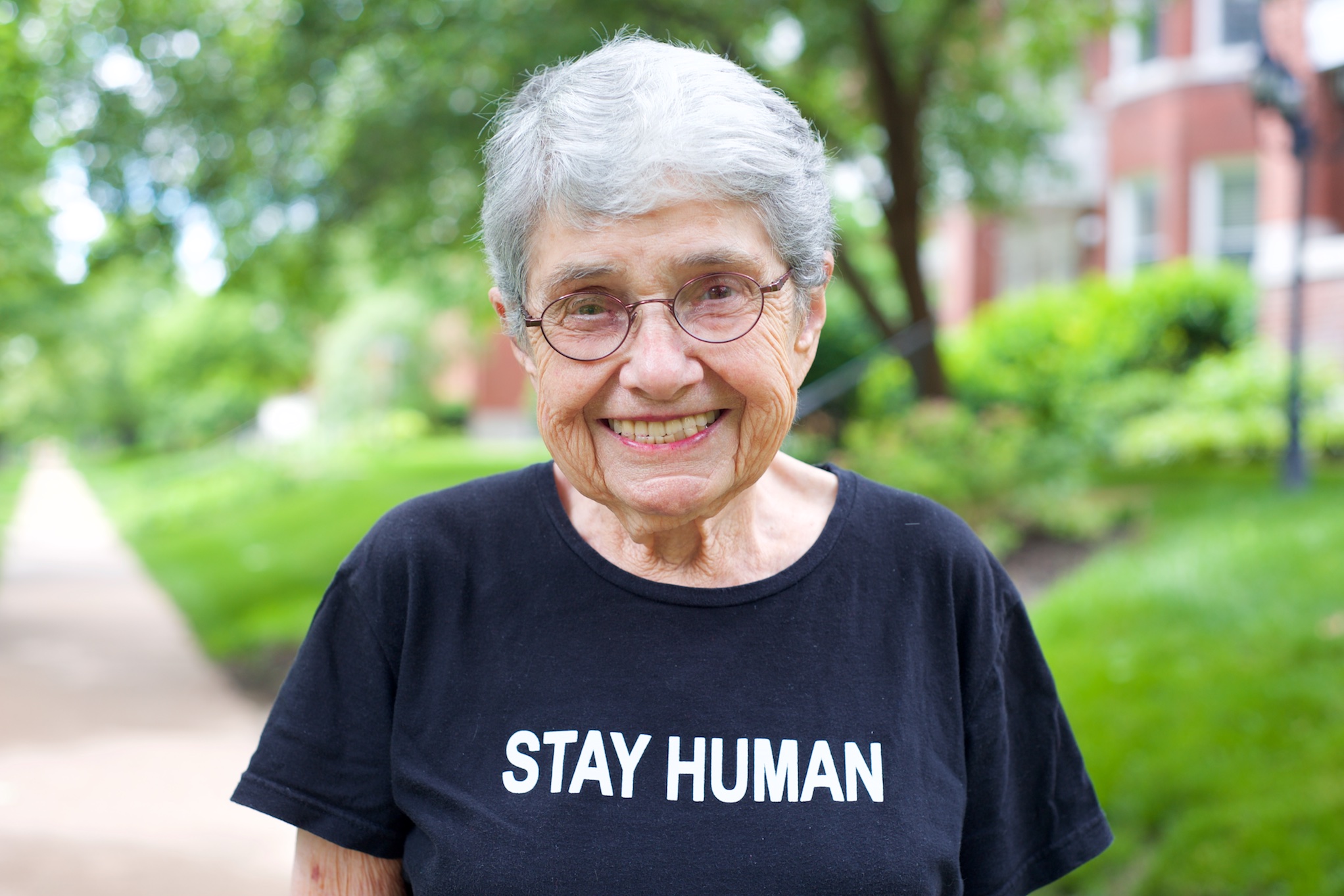When asked about how she became involved in civil rights, Hedy often shared the following story, which was published in the 2022 book “Humans of St. Louis” by Lindy Drew and Dessa Somerside.
“The first time I remember being shocked about my own lack of information was when I came to this country in May 1948, and I started working a few days later. The person who told me what I was supposed to do in my job was an African American woman. Shortly before lunchtime she said, “We go to lunch at noon. Did you bring your lunch?” I said “No.” She told me all the different restaurants in the neighborhood. This was in New York City. So, I said, “Well, can we go together?” And she said, “No.” I didn’t think anything about it. Maybe she’s made arrangements with somebody else. “Okay, well maybe tomorrow?” “No.” I waited a few days, and asked again. By that time, I was beginning to wonder “Is there something about me that’s bothering you? Please tell me.” She said, “You know why.” “No, I don’t. Please tell me. I honestly don’t know why.” “Well, you’re white. And where you can go to lunch, I cannot. I’m Negro. And where I go, white people don’t.”
I said “What? I read the Good Book and Lincoln freed the slaves and this is 1948 and you can’t go to eat where I go?”
Hedy Epstein
Isn’t somebody doing something about this?” She said “Yeah, maybe the Urban League and the NAACP.” I said, “How about I get in touch with them?” I’d only been in this country less than two weeks. Finally, I went to where she went to eat. I asked her, “Can I please go with you?” And I ate chitlins for the first time. I never ate chitlins before. And that was the beginning of me getting involved in civil rights issues.”
Fair Housing
That Hedy Epstein was a lifelong champion for civil rights is perhaps best evidenced by her career choices including her years advocating for fair housing in St. Louis, Missouri where redlining and restrictive covenants kept many African Americans in segregated neighborhoods. She volunteered during the 1960’s with the Greater St. Louis Committee for Freedom of Residence and in April, 1969 Hedy was hired as a Coordinator, her first paid position since marrying and assuming a traditional role of homemaker and mother.
Hedy was thrilled to take on the responsibilities that were assigned to her and credited Freedom of Residence with giving her “a new lease on life.” As Coordinator, Hedy investigated and remedied discrimination complaints in the rental, purchasing and financing of housing in the metropolitan area, and recruited, trained and supervised volunteers. In 1969 Hedy initiated, conducted and participated in an 8-month study of real estate practices in St. Louis. This study led to a suit filed by the U.S. Department of Justice against leading real estate companies, a December, 1971 consent decree, and the adoption of a fair housing code by the Metropolitan St. Louis Real Estate Board, the first of its kind in the country, and subsequently adopted by the National Association of Real Estate Brokers.
In January, 1970 Hedy served as an expert witness in a U.S. Civil Rights Commission Hearing on housing discrimination in St. Louis. Hedy wrote Patterns of Discrimination documenting the objectives, methodologies, findings, and results of the Freedom of Residence study. In September, 1971 Hedy was hired as the Executive Director of Freedom of Residence and served until September, 1978.
Hedy’s commitment to fair and open housing continued after her tenure with Freedom of Residence. In September, 1979 Hedy joined the Metropolitan Human Relations Commission in Fort Wayne, Indiana as a fair housing coordinator. Hedy returned to St. Louis in the early 1980’s and in 1992 was a founding member of the St. Louis Equal Housing Opportunity Council. She remained a committed board member for the rest of her life.
